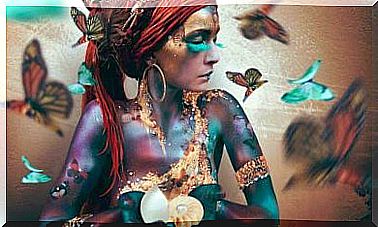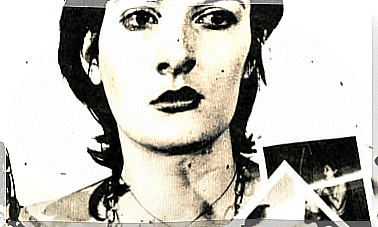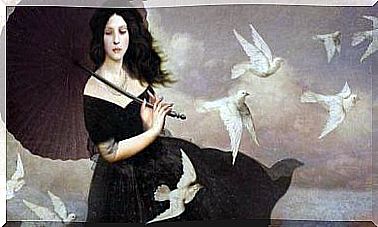What Is Alter Ego And Why Would It Be A Good Idea To Create One?

Each of us has multiple facets or ways of being, even if we only cultivate or develop a part of it. At first, the word alter ego refers to those other facets that are hidden and that do not manifest, but that inhabit our interior in a potential way.
Some think it’s a good idea to create an alter ego so they can express and develop as fully as possible. Does this make sense?
Literally, the ego is the “me” and the alter ego is “the other me”. We are only aware of the first. It’s what we call personality, those traits that define and differentiate us.
The alter ego, on the contrary, would be more present in our unconscious. It’s that villain, that hero or that artist that is sleeping in us. Another identity that, for various reasons, has not yet developed.
For example, it is possible that when you were a child, you had a real fascination with animals. However, it is also possible that over the years this passion has taken a back seat and that you have decided to work in the accounting area of a large company, a job you may also enjoy a lot.
Deep down, however, this curious biologist still exists. Maybe you don’t pay attention to it, but it’s there. In this example, that would be your alter ego.
The various meanings of alter ego
The first to use the word alter ego was Franz Mesmer, an 18th century physician who used some practices of hypnosis in his treatments. He found that some people showed strange parts of themselves during hypnotic trance, as if they were other people. Mesmer called this other self that appeared in these conditions an alter ego.
The alter ego is a theme often addressed in the art world, especially in literature. Many writers turn this alter ego into the protagonists of their stories. They build characters that are apparently very different from themselves. But, obviously, they are part of them, as they could not create something that was completely foreign to them.

Often the characters in the stories themselves have an alter ego. It is a friend, a counselor or a partner who contrasts with your way of being and acting. The character, for example, is a little crazy around someone who constantly pushes him to the side of wisdom, or helps him get out of all the trouble he gets himself into.
In theater, actors make use of alter ego to build characters different from themselves. In superhero comics, this is a constant. Clark Kent is a shy reporter who hides his superman side.
Now… Is it worth it for us normal people to explore our alter ego?
How and why to build an alter ego
The construction of another self is a resource that can have therapeutic purposes. This other self can be in charge of doing many of the things the usual self would not do. It is also possible that it will become an ideal complement to our lives.
As in the previous example, if the biologist can come out sporadically, this hidden scientist that dwells within you, maybe you can feel a greater fullness in your life.
In this way, sometimes an alter ego is constructed so that the person can free himself from the limitations that the ego itself imposes. For example, a person who is very attached to material goods could pretend that he is generous at certain times and experience for himself what it is like to give a little of what he has.
Or someone who is extremely reserved could invent an alter ego to expose themselves to social situations under different conditions. This other self, or created character, can have its own name, its own history. It is a game of imagination that can eventually be beneficial from a psychological point of view.

Risks and benefits
Alter ego is only a problematic factor in the case of dissociative identity disorder, better known as split personality. In this pathology, the other “I”, or the other “I”, are constructed unconsciously and with unhealthy purposes.
On the contrary, if the alter ego is constituted consciously and with healthy purposes, it is possible that it becomes an excellent resource to evolve and live better. Identity is a concept that, at times, becomes limiting, as it usually only corresponds to a part of us, which we end up assuming as a whole.
It is important to understand that individual identity is a dynamic and flexible concept. Of course we all have traits that become dominant. However, this does not mean that what we are is finished, and that we cannot explore other regions of our being that, perhaps, would also have a beautiful light of their own.








